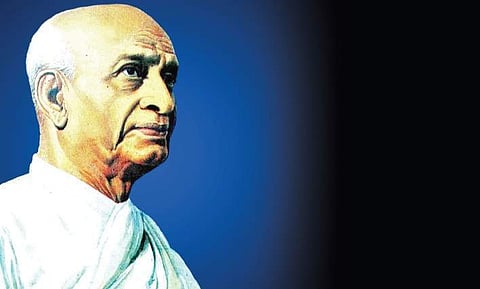

BENGALURU: “I wish this to be recorded in this House that during the last two or three years, if most of the members of the services had not been serving the country efficiently, practically the Union would have collapsed,” said Sardar Vallabhbhai Patel, in an October 10, 1949 address to the Constituent Assembly. In October 1951, Parliament passed the All-India Services (AIS) Act, which laid down the rules of recruitment and service conditions of AIS officers, who Patel described as the “steel frame”.
Patel, unfortunately, passed away on December 15, 1950. Today, Patel’s debates in the Constituent Assembly are being quoted by the supporters and opponents of the proposed amendment to the IAS (Cadre) Rules, 1954. The sharp reaction from critics is that the amendment, by which officers on Central deputation shall be decided by the Centre, in consultation with the respective state governments, and in case of any disagreement, the decision of the Centre will be final, is that it would infringe upon co-operative federalism. But supporters of the amendment argue that the AIS (IAS, IPS, and IFoS) constitute the “bridge between the Centre and the states as was envisaged, and must be kept above party, or indeed petty, politics,” said Director, Public Affairs Centre (PAC) and former IAS officer, Karnataka cadre, Gurucharan Gollerkeri.
“What is the opposition for? The Cadre deputation rules provide up to 40 per cent reserve from the total state cadre strength for Central deputation. There is a shortage because many officers don’t like to go on Central deputation because of various reasons,” he said. “This has led to gross under-representation of bureaucrats from the states south of the Vindhyas. States like Maharashtra, Telangana, Andhra Pradesh, Tamil Nadu, Karnataka, Odisha are highly unrepresented at the Centre. On the contrary, there is an over-representation of AIS officers from the BIMARU states in the Government of India. This imbalance in equal representation of AIS officers at GoI militates against the spirit of the all-India nature of services, and skewed policies,” he added.
Gurucharan said the stand taken by West Bengal and Tamil Nadu is not new. “They had expressed similar views before the Sarkaria Commission on the Centre-state relationship in 1985 and earlier, before the States Reorganisation Commission. On both the occasions, their submissions were dismissed. When the Central government is the appointing and cadre allocating authority of the AIS, where is the dichotomy in it asking for AIS officers from the states for Central deputation?” questioned the former bureaucrat. “The appointing authority should also be responsible for the functioning and conduct of AIS officers,” he added.
Gurucharan said the “perspective of the states should change to recognise that the work GoI does across sectors is as important for the progress of the state and therefore, it is in their interest to have their own cadre officers representing the state at the Centre. It will also give a fillip to better monitoring of projects and drawing them to states concerned”.